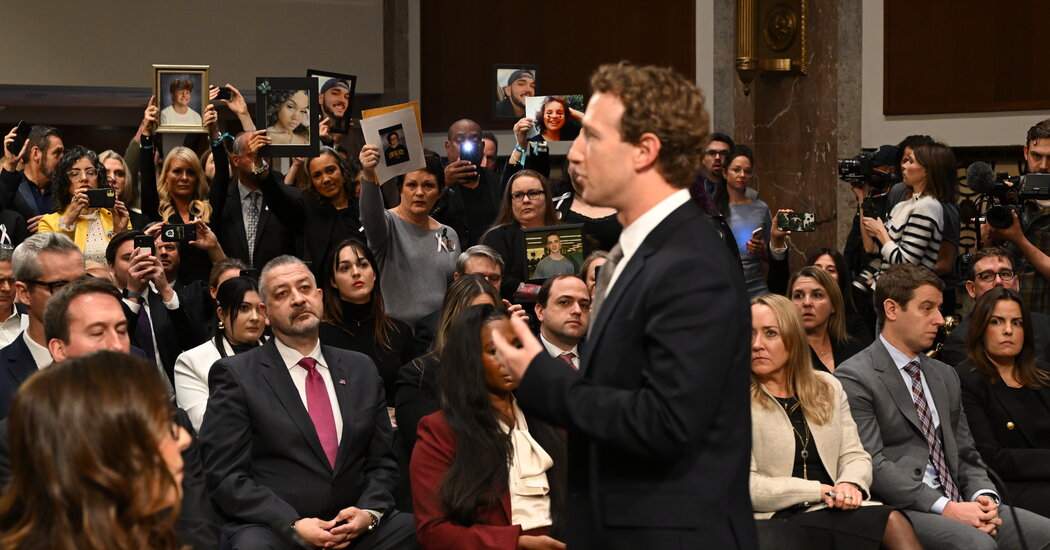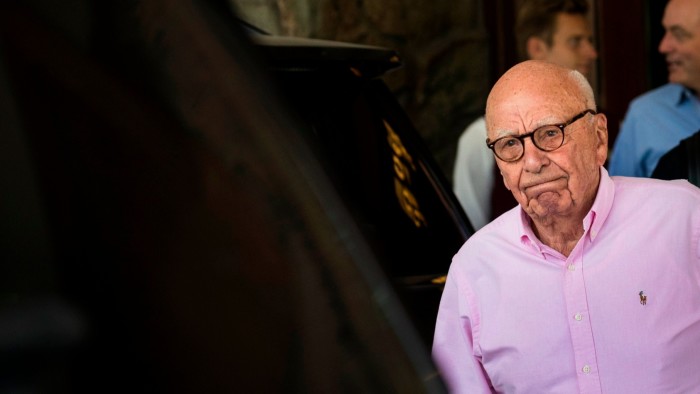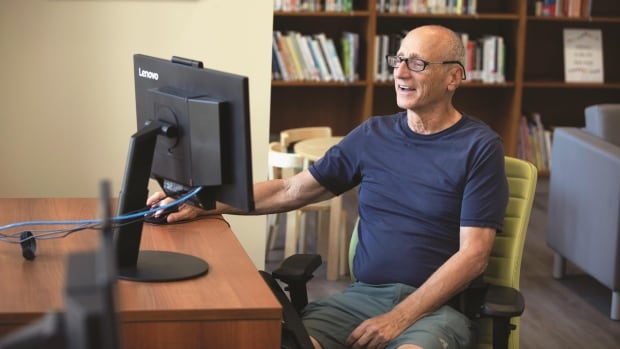
“I’m sorry for everything you have all been through,” Mr. Zuckerberg said. “No one should go through the things that your families have suffered.” He said that his company was working so that no one else would have to do so, and did not address Meta’s role.
The leaders of Meta and TikTok took most of the heat.
Though executives from Meta, Snap, Discord, X and TikTok were all called to the hearing — the latter three were subpoenaed to testify — it was Mr. Zuckerberg and Shou Chew, TikTok’s chief executive, who spent the most time in the spotlight. Senators grilled the two men on the number of abuse incidents across their platforms.
Two of the five chief executives agreed to support the Kids Online Safety Act.
Evan Spiegel, chief executive of Snap, and Linda Yaccarino, who leads X, both agreed to support the Kids Online Safety Act, or K.O.S.A. The proposed law would require online services like social media networks, video game sites and messaging apps to take “reasonable measures” to prevent harm — including online bullying, harassment, sexual exploitation, anorexia, self-harm and predatory marketing — to minors who use their platforms. Mr. Zuckerberg, Mr. Chew and Jason Citron, the chief executive of Discord, did not pledge their support, with some arguing that it was directionally helpful but contained some overly broad restrictions that may come into conflict with free speech issues.
TikTok faced heat for its ties to China.
Lawmakers repeatedly pressed Mr. Chew about TikTok’s ties to the Chinese government, thanks to its Chinese ownership by ByteDance. Mr. Chew, who was born in Singapore and still lives there with his three children, was asked whether he had a Chinese passport or had ever applied for Chinese citizenship. (He had not, though he lived in Beijing for five years.) He was also questioned about the progress of TikTok’s multibillion-dollar plan for walling off sensitive U.S. user data.
After years of debate, no bills have passed.
Despite years of railing against Big Tech in public, no meaningful legislation has moved its way through Congress to be signed into law.
Sapna Maheshwari contributed reporting from New York.






